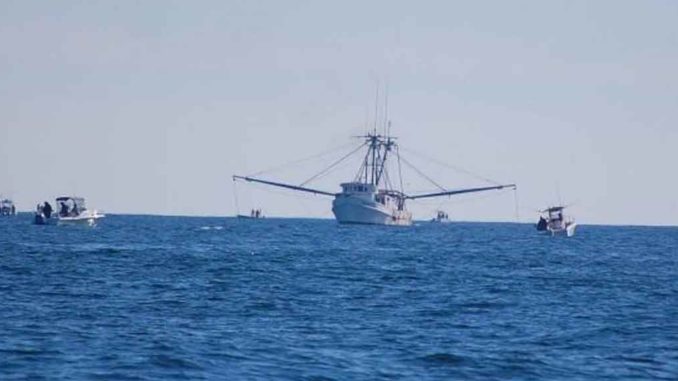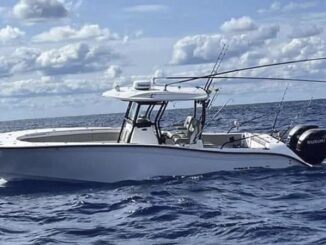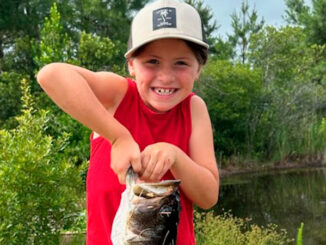
It’s been a busy seven days for Louis Daniel, director of the N.C. Division of Marine Fisheries.
On Jan. 14, Daniel implemented a statewide moratorium on the catch of speckled trout because of massive cold-stun kills.
Then, on Jan. 20, because of excessive kills of ocean-run striped bass south of Oregon Inlet, Daniel changed a 15-year-old regulation that in essence had allowed “high-grading” (culling) of striped bass by striper trawls.
Approximately 100 recreational boats and anglers witnessed four trawls near Kitty Hawk dumping excess stripers over the permitted 50-fish limit on Jan. 15-16, littering the ocean with dead fish.
The striper regulation change — now trawlers will have a 2,000-pound trip limit and can transfer (only at sea) trip limits to other fishing vessels that hold striper ocean fishing permits — was announced Jan. 20. The old 50-fish-per-day trip limit was eliminated by Daniel.
What prompted the striper change was an overloaded fishing net in a trawler Saturday, Jan. 15, off Bodie Island, according to an NCDMF news release.
Explaining the regulation change, Daniel noted that “after towing through a school of striped bass, fishermen on the commercial trawler Jamie Lynn found the net was so full it was too heavy to bring onto the boat. In order to retrieve the net, the fishermen had to open it and release the fish, the boat captain said.
“The boat captain estimated 3,000 to 4,000 fish were released from the net. Many recreational and commercial fishermen picked up the discarded fish. When Marine Patrol officers arrived on the scene, there were approximately 250 dead fish.”
The NCDMF confirmed the specifics of the event through an eyewitness account and an interview with the boat captain.
“Staff with the division is still investigating the incident but has been unable to confirm reports that commercial trawl fishermen were high-grading,” the release noted. “High-grading occurs when a fisherman discards a previously-caught, legal-sized fish in order to keep a larger fish within the daily possession limit. While high-grading is not illegal, it is not an ethical fishing practice, and the division does not condone it.”
NCDMF will reopen the ocean trawl season on Monday, Jan. 24 for three days because approximately 110,000 pounds remains of the 160,160-pound quota for the trawl fishery this year.
NCDMF opens and closes North Carolina’s commercial ocean striped bass fishery and sets trip limits under a quota system set out in the Atlantic States Marine Fisheries Commission Fishery Management Plan for Atlantic Striped Bass. The Atlantic States Marine Fisheries Commission is a compact of 15 east coast states that manages migratory fish in state waters (within three miles from shore).
North Carolina’s share of the coast-wide commercial ocean striped bass annual quota is 480,480 pounds. It is split evenly between three commercial fisheries: the trawl fishery, the gill net fishery and the beach seine fishery.
“It is incumbent upon all fishermen — commercial and recreational — to use common sense in the way they fish,” Daniel said in his news release. “Commercial trawl fishermen should limit their tow times to avoid overburdened nets. Recreational fishermen should practice ethical angling techniques. Fishing responsibly today will help ensure there will be fish in the future.”
The N.C. Marine Fisheries Commission will review Daniel’s actions at its Feb. 11 meeting in Pine Knoll Shores.




Be the first to comment